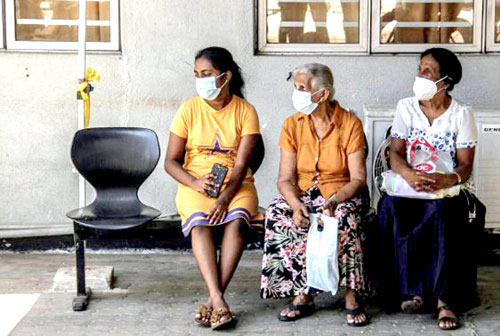Entire wards are dark and nearly empty in Sri Lanka’s largest hospital, its few remaining patients leaving untreated and still in pain, and doctors prevented from even arriving for their shifts.
An unprecedented economic crisis has dealt a body blow to a free and universal healthcare system that just months earlier was the envy of the country’s South Asian neighbours. Suffering from diabetes and high blood pressure that inflamed her joints, Theresa Mary travelled to the capital Colombo for treatment at the National Hospital of Sri Lanka.
Unable to find a ride for the last leg of her journey, she had to limp the last five kilometres (three miles) on foot.
She was discharged four days later, still finding it difficult to stand on her feet, because the dispensary had run out of subsidised painkillers. “Doctors asked me to buy medicines from a private pharmacy, but I don’t have money,” Mary, 70, told AFP.
“My knees are still swollen. I don’t have a home in Colombo. I don’t know how long I have to walk.” The National Hospital normally caters to people all over the island nation in need of specialist treatment, but it now runs on reduced staff and many of its 3,400 beds are lying unused.
Supplies of surgery equipment and life-saving drugs have been almost exhausted, while chronic petrol shortages have left both patients and doctors unable to travel for treatment. “Patients scheduled for surgeries are not reporting,” Dr Vasan Ratnasingham, a member of a government medical officers’ association, told AFP.
“Some medical staff work double shifts because others cannot report for duty. They have cars but no fuel.” Sri Lanka imports 85 percent of its medicines and medical equipment, along with raw materials to manufacture the remaining share of its needs.
But the country is now bankrupt and a lack of foreign currency has left it unable to source enough petrol to keep the economy moving — and enough pharmaceuticals to treat its sick. “Normal painkillers, antibiotics and paediatric medicines are in extremely short supply. —APP










